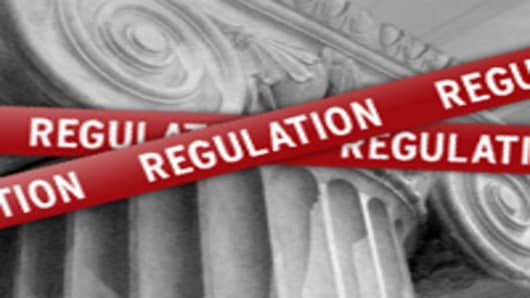Now, the House of Representatives is seizing de-facto veto power over nearly all regulations coming from federal agencies. The REINS Act subjects any federal rule estimated to have a $100 million or more economic impact to a Congressional vote. Legislators will have the power to block common-sense standards and safeguards that prevent abuses and promote a healthy, competitive business environment.
If REINS becomes law it will deadlock the rulemaking process. As CEO of New Resource Bank, a community bank that lends to individuals and small businesses in San Francisco, it’s clear to me that we need more and better regulations in the financial sector. We need safeguards that prevent misleading and dangerous mortgage products from being sold to borrowers who can’t afford them. We need standards that prevent piles of bad loans from being packaged and sold as if they were top quality. Under these standards, we would never have had the near-meltdown of the major banks, the credit squeeze that resulted, the trillion-dollar bailout, and the millions of homeowners who are underwater on their mortgages and unable to spend much on anything.
If the REINS Act had been law in 2009, banks like mine would not be doing as well or lending as much to small business as we are today because we likely wouldn’t have the market rules that help us compete. For example, when the Federal Reserve passed rules (the so-called “opt-in/opt-out rules”) requiring banks to get customers’ permission for overdraft fees, it allowed customers to see the true cost of my bank’s products as compared to the bigger banks. Furthermore, the insurance assessment rules instituted by the F.D.I.C. after Dodd-Frank passed actually reduced the cost of insurance for 98 percent of community banks by making large banks pay their fair share.
As the American Sustainable Business Council, a leading advocate for sustainable economic development, argues, America's small businesses will succeed only if we have the flexibility to respond to complex and rapidly changing economic forces and if we operate our markets with rules, standards, and safeguards that promote responsible decision-making.
The REINS Act will hurt rather than help small businesses because it fails to address the sluggish economy, the lack of consumer demand, or the need for safeguards that make the financial system more robust and reliable. Now that this Act has passed the House, Senators who support small businesses and a strong economy must reject this harmful bill and build the foundation for a new and sustainable economy.
Vince Siciliano, CEO of New Resource Bank, a community bank that lends to individuals and small businesses in San Francisco.


